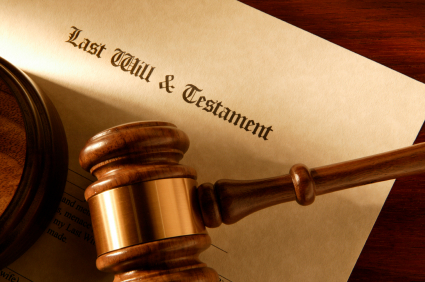As parents, we are concerned about the safety, health and welfare of our children. We will do almost anything in order to protect them and provide for their best interests. We seek the best neighborhoods with the lowest crime rates in order to ensure that our children will obtain the best education possible in a safe environment. We also select the best doctors to care for our children in times of illness, take financial measures to ensure future success and wealth for our children by maintaining bank accounts on their behalf, or perhaps establishing college savings plans and obtaining a life insurance policy for their benefit in our absence. However, what is often left out of the equation is the importance of obtaining a will in order to designate who will take care of our children in the future if we are no longer around.
A last will and testament does not simply serve as a vehicle for the disposal of one’s estate, but it is also the instrument for designating a legal guardian for minor children. The natural parents of a child are automatically deemed to be the guardians of their minor children. Therefore, if the mother of the child passes away, typically the father of the child will be granted legal guardianship of the minor child, and vice versa. However, if the other natural parent is not alive, is simply unwilling to serve, or is proven to be unfit to act as guardian of the minor child, then the court will appoint someone else to serve as the minor child’s guardian.
If you designate a guardian for your minor children in your will, then the court will give deference to your designation. However, it is important to note your designation is not foolproof. When you designate a guardian in your legal will you are stating your preference as to who you would like to care for your child upon your (and presumably your spouse’s) passing, but your preferential designation is ultimately subject to the court’s approval.
Why doesn’t the court always comply with one’s guardian designation? Practically speaking, people, as well as their circumstances, are always subject to change. Consider the circumstance where a young couple prepares a will when their child is a newborn and they designate their trusty college roommate as the guardian. However, a decade later, the trusty college roommate is now a raging alcoholic, leading a life that is less than desirable for raising a child, or is even imprisoned. If this is the case, and this information is brought to light in the guardianship proceeding, then the Court will make a determination as to the fitness of the designated guardian in the will and does not have to comply with your designation.
Even though the designation is not foolproof, it is well worth the effort to have an estate planning attorney draft your will so that you have peace of mind knowing that you have done everything in your power to identify who you believe to be a proper guardian to care for your children– as opposed to leaving this major decision up to the courts, who are the least familiar with you, your children and your values.
